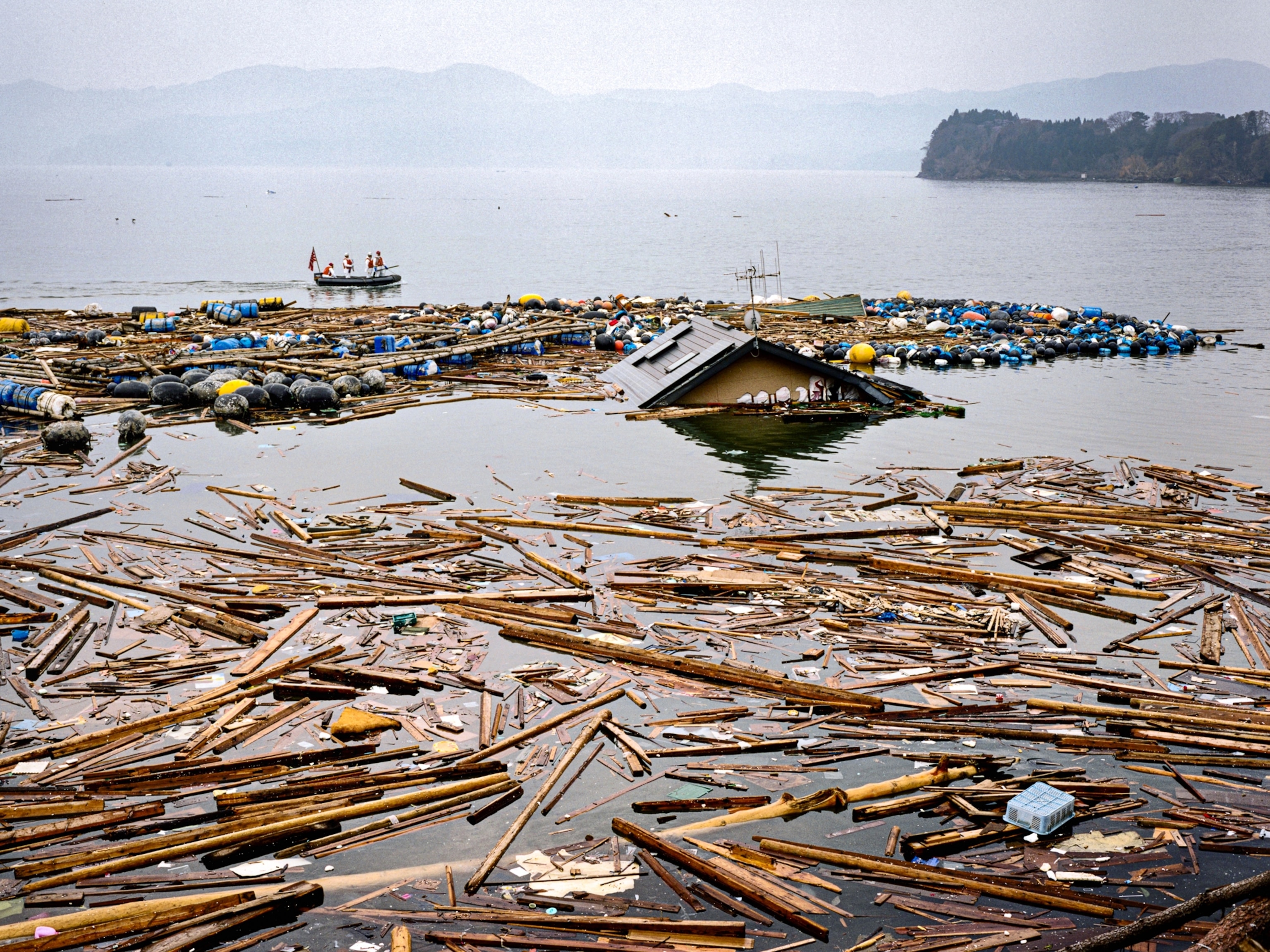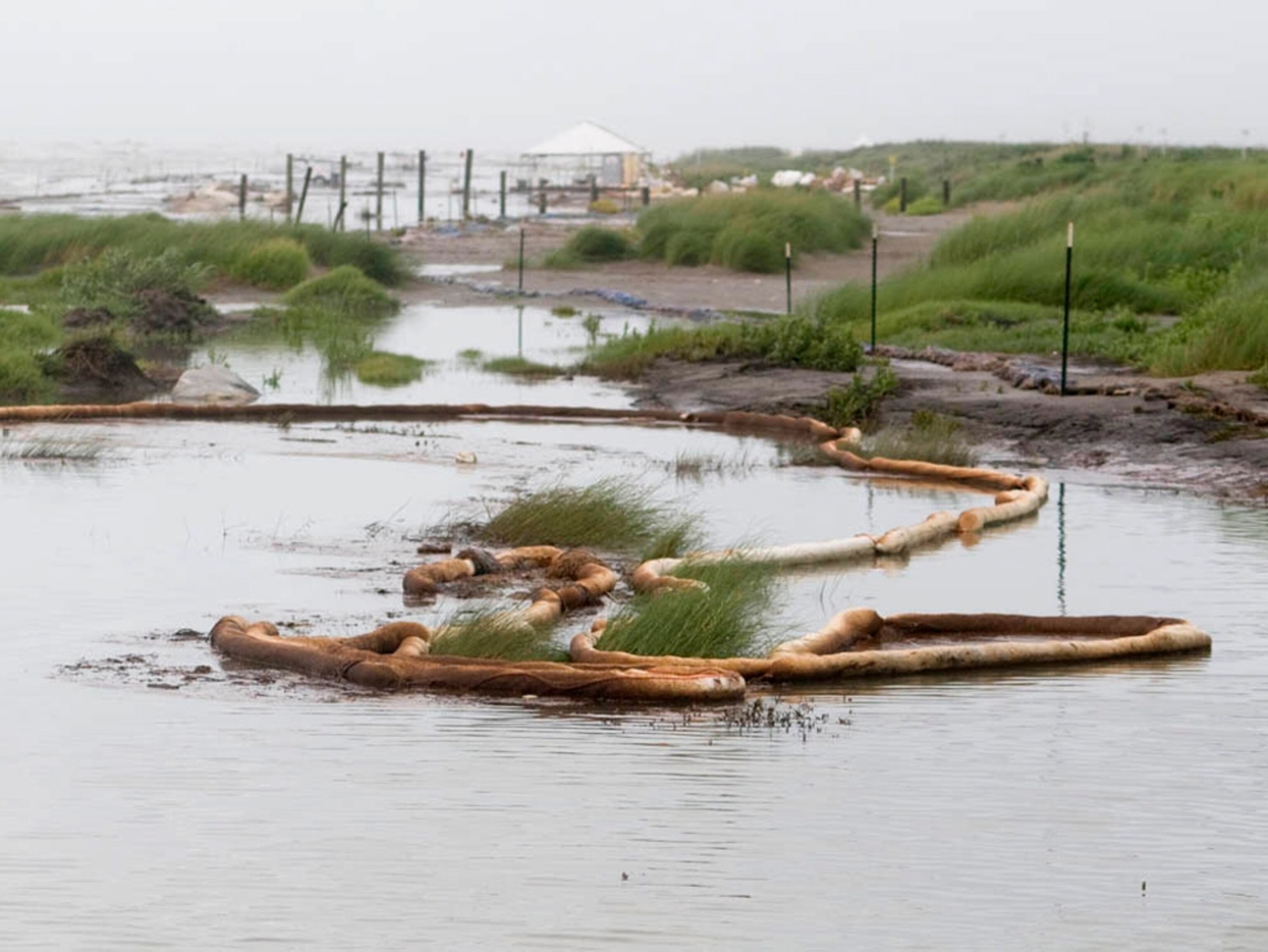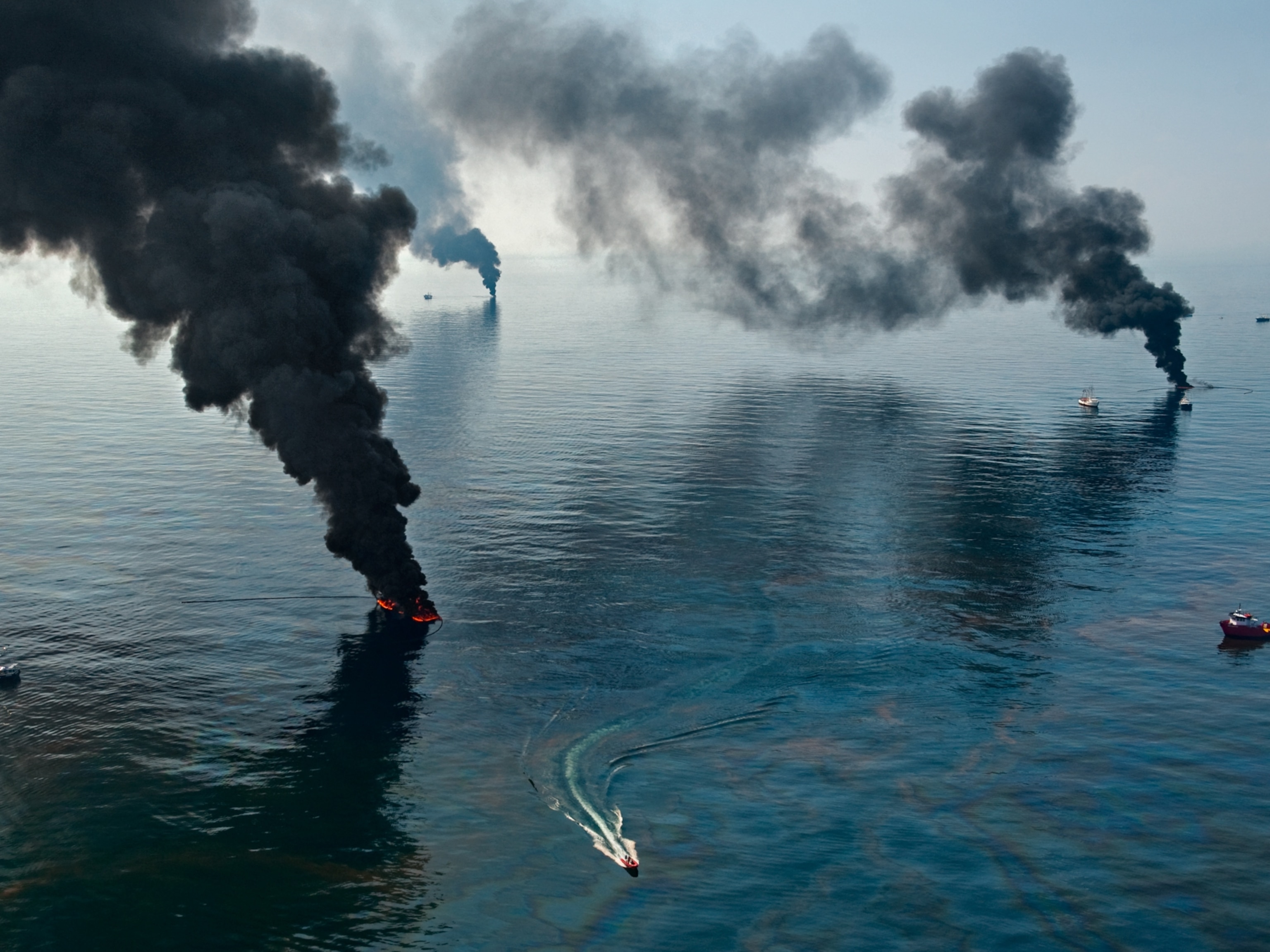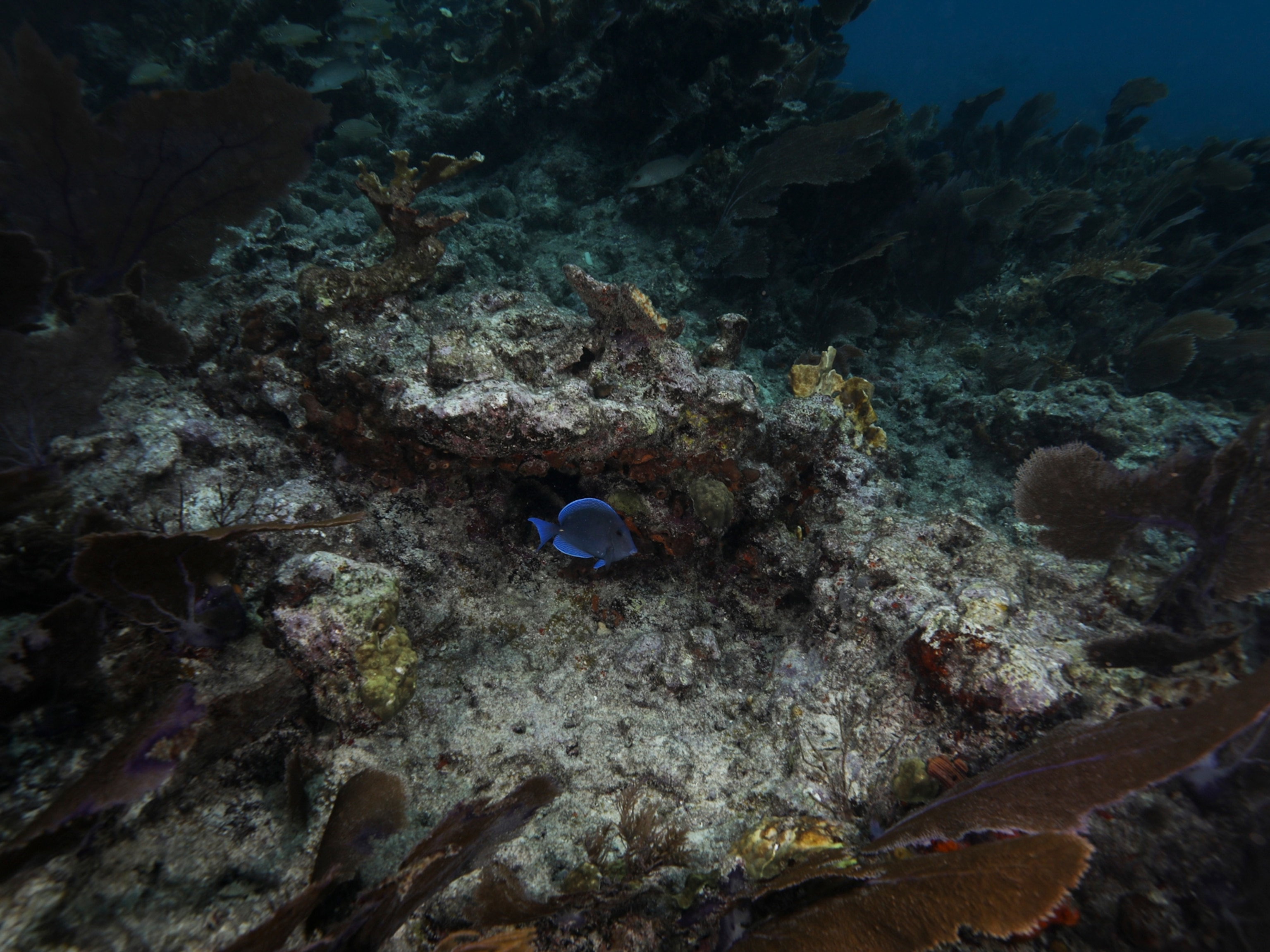
Hurricane Alex Pushes "Worst Oil" Ashore; Cleanup Slowed
A "wake-up call": Alex stymies Gulf oil spill cleanup in Louisiana.
It's been less than a day since Gulf of Mexico oil spill cleanup crews—forced out by rising waters and winds from Hurricane Alex—left a relatively clean Fourchon Beach, Louisiana.
But already the oil is back.
On Wednesday morning powerful, hurricane-driven waves crashed over abandoned booms, soggy with chocolate-brown oil. Patches of weathered, orange-red oil ringed a decontamination station, where normally workers would be de-greasing shoes and equipment.
And in just minutes the tide rose at least 6 inches (about 15 centimeters) at this shoreline on the edge of Lafourche Parish's Port Fourchon, a major oil port on the Gulf of Mexico—the highest tide ever seen by Brennan Matherne, public information officer for the parish.
(See Gulf of Mexico map.)
Hurricane Alex was hundreds of miles away, off northern Mexico and western Texas's Gulf shores, on Wednesday. But the storm's outer bands pushed heavy plumes of oil from BP's Deepwater Horizon spill inland in Port Fourchon for the first time since late May.
(Related: "Hurricane Alex 'So Darn Large,' But Oil-Storm Fears Unfounded?")
"Worst Oil We've Seen" on Beaches
Cleanup operations along most of nearby Grand Isle and parts of adjacent Lafourche Parish were called off most of Tuesday and Wednesday due to rough waters and flooding from Hurricane Alex.
No crews were permitted to scour the beach for oil, and few skimming boats were sent out to corral the oil with absorbent booms.
"This is the worst oil we've seen yet, and"—with no one around to clean it up—"this is the absolute worst time for the oil to be here," said Wayne Keller, executive director of the Grand Isle Port Commission.
Keller supervises some of the efforts to clean oiled beaches on Elmer's Island National Wildlife Refuge, off Grand Isle, where beach access has been cut off by high waters from Hurricane Alex.
"We can't stop it. There's no skimming, booms aren't working in the heavy surf. It's a mess right now."
And "the largest [oil] plumes we've seen yet are offshore."
Hurricane Alex a Wake-Up Call
The "biggest fear" is what will happen if a future hurricane makes a beeline for Louisiana, Lafourche Parish's Matherne said.
"We see what a hurricane passing 800 miles [about 1,280 kilometers] away from us [does]," Matherne said on the wind-whipped Fourchon Beach, usually full of fishers and campers this time of year.
"Imagine, if it gets any closer than that, what effect it's going to have," he said. (See "Hurricane Could Push Spilled Gulf Oil Into New Orleans.")
"This was a wake-up call to the Coast Guard and all the people who aren't from this area to make them understand what kind of dynamic we're dealing with when we have a storm here."
Even so, the Grand Isle Port Commission's Keller said the current situation suggests indirect effects of a storm like Hurricane Alex can still be devastating.
Regardless of whether a storm's winds are faster or slower than a hundred miles (160 kilometers) an hour, "it's the same effect."
Oil-Spill "Warriors" Undaunted by Hurricane Alex
Not everyone doing oil cleanup was off work Tuesday.
The 40 shrimping boats employed by BP as oil skimmers in Lafourche Parish were the only Louisiana vessels to go skimming in the 3- to 4-foot (0.9- to 1.2-meter) swells whipped up by Hurricane Alex, said Mark Bisnette, chief marine-science technician for the U.S. Coast Guard.
"These guys here are warriors," Bisnette said as the sun briefly broke through the clouds over Bobby Lynn's Marina, the launching point for the makeshift oil skimmers.
As he spoke, shrimping boats-turned-skimmers returned from a rough night at sea, carrying booms dripping with thick oil.
Despite Hurricane Alex, the boats had collected about 500 bags of oil-absorbing material—a surprisingly high number, Bisnette said.
For Scott Perrin, a local commercial fisher and team leader on one of the vessels, Tuesday's trip "wasn't bumpier than an ordinary day of shrimping."
But after witnessing the biggest oil plumes he's seen so far—which reminded him of peanut butter—Perrin is worried how he's going to make a living.
After "what I saw yesterday, I don't know what's going to happen."





